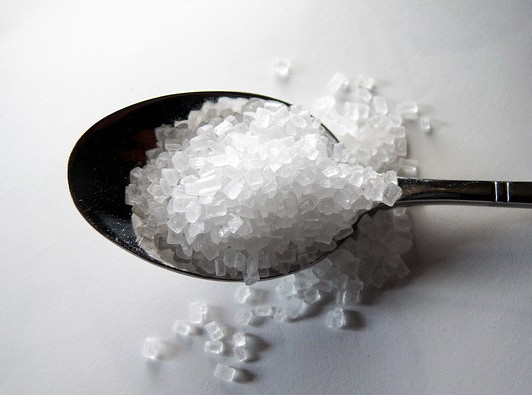In the contemporary age of health and wellness, the landscape of dental care is undergoing a transformation. While traditional methods have their merits, emerging research points towards a novel, potentially groundbreaking solution: xylitol. In this in-depth analysis, we’ll explore the many benefits xylitol offers as well as how those benefits affect oral health. Xylitol is fundamentally a sugar alcohol generated from plants that is mostly present in fruits and vegetables.
At its core, xylitol is a sugar alcohol derived from plants, predominantly found in fruits and vegetables. Yet, its significance transcends its natural origins. Not only does it act as a formidable sugar substitute, but its dental benefits are making waves in the medical community. Distinguished by its unique molecular structure, xylitol doesn’t merely replace sugar—it seeks to redefine our understanding of dental protection.
Why is Xylitol so important with regard to dental health?
What does xylitol actually do? What is the link between Xylitol and dental health? Xylitol is most famously known for and often cited alongside other all-natural sweeteners like Stevia and Agave nectar. But does it really benefit your teeth? In this post, we will explore everything you need to know about xylitol, from how it compares to sugar to how it affects your teeth.
The human mouth can be likened to a complex ecosystem as it harbours a multitude of bacteria. Many of these bacteria feed on sugars in the mouth, converting them into harmful acids, which are the main culprits behind enamel erosion. Enter xylitol, a deceptive adversary to these bacteria. As the bacteria attempt to metabolize or break down xylitol, they are rendered ineffective, significantly reducing acid production. This may be subtle, but it does have a very potent action with profound benefits for dental cavity prevention.

Since xylitol is not sugar, it behaves differently in the mouth than sugar. In addition to reducing the germs in saliva that cause tooth decay, xylitol does not break down into acids like sugar does. Xylitol doesn’t have any inherent antibacterial characteristics; instead, it seems to boost the body’s natural defences. Microorganisms like Streptococcus pneumoniae and Streptococcus mutans are inhibited in their growth by xylitol’s anti-adhesive properties. In addition, Xylitol has been used by Ear nose and throat specialists for preventing otitis media, and rhinosinusitis.
When compared to fluoride-only toothpaste, there is some evidence to show that using fluoride toothpaste with xylitol may prevent tooth decay in children’s permanent teeth by 13% over the course of three years. The kids did not report any adverse effects during this time. The remaining information we gathered prevented us from drawing any firm conclusions about whether more xylitol-containing products can stop tooth decay in babies, older kids, or adults. The only drawback here is that due to the few studies that are available, the unreliable results, and other problems with the study, the evidence supporting this is not considered very strong.
The benefits of xylitol don’t stop at mere prevention. Another unique feature is its ability to facilitate remineralization. As teeth undergo wear and tear, they naturally lose minerals. Xylitol aids in replenishing these, fortifying the tooth’s defences and making it less susceptible to external threats. This dual-action—prevention and restoration—positions xylitol as a cornerstone of modern dental care.
Navigating the Side Effects of Xylitol for Oral Wellness
Like a few other naturally-occurring substances, it is essential to be informed about potential side effects. Here is a brief overview of the most common side effects of xylitol and tips on how to manage them.
Digestive Disturbance: Consuming xylitol frequently results in digestive disturbance. Individuals may develop symptoms like gas, bloating, and diarrhoea after consuming large amounts. This occurs because the body lacks the enzymes needed to completely metabolise xylitol.
Solution: Exercise moderation. Start by introducing small amounts of xylitol to your diet, and then gradually let your digestive system adjust. Consider lowering or quitting using xylitol if symptoms worsen or persist. To help with digestion, think about taking probiotics or digestive enzymes.
Laxative Effect: Because xylitol is not absorbed, it might cause a laxative effect by luring water into the intestines. This may lead to unforeseen and frequent trips to the loo.
Similar to stomach pain, the recommended course of action is to eat xylitol in moderation. If you’ve never used xylitol before, start with smaller dosages and watch how your body reacts before stepping up consumption.
Rarely, some people may suffer allergic responses to xylitol, which show up as hives, itching, or swelling, usually in the facial area.
Solution: Stop using xylitol right away and consult a doctor if you think you’re having an adverse reaction. Antihistamines can be taken to reduce allergy symptoms, but medical advice is absolutely necessary.
Blood Sugar Levels: Despite having a low glycaemic index and being frequently used as a sugar substitute for diabetics, xylitol might nevertheless have a negligible impact on blood sugar levels.
Solution: When adding xylitol to their diets, diabetics should regularly monitor their blood sugar levels. It is advised to speak with a healthcare professional about the proper dosage and frequency.
Allergic Reactions: Rarely, some people may suffer allergic responses to xylitol, which may present as hives, generalized itching, and swelling in the face or the throat.
Solution: Stop using xylitol immediately and seek urgent medical assistance if you suspect you are having an adverse reaction. You should take antihistamines to alleviate any allergy symptoms, having said the above, it is crucial to also seek medical advice even after a possible allergy or adverse reaction has been aborted.
Risk of Overconsumption: Because of how sweet it is, there is a chance of overconsumption, which can make the aforementioned negative effects worse.
Solution: Self-awareness and self-monitoring are important solutions. To determine the amount of xylitol in a product, always read the label and adjust your consumption accordingly.
Dosing considerations: How much Xylitol should you take?
Even with just two tablespoons per day, substituting Xylitol at a 1 to 1 ratio for sugar is noted to be completely appropriate and can significantly improve oral health. Studies show that xylitol has no adverse effects even at doses as high as 400g per day.
Making Xylitol Work for You
The theoretical benefits of xylitol are evident, but practical implementation is where its true potential shines. Recognizing xylitol’s potential is one thing; actualizing it is another. The market is rife with products touting xylitol content. However, discernment is key. From toothpaste to mouthwashes, the market is witnessing a surge in xylitol-infused products. For those keen on leveraging its benefits, it’s paramount to choose products with xylitol as a dominant ingredient. Incorporating xylitol-rich products into daily routines can significantly enhance oral health over time.
Furthermore, regular use, combined with informed choices, forms the bedrock of effective xylitol utilization.
A Concluding Perspective: Assessing Xylitol’s Place in the Dental Arsenal
The dental terrain is complex, marked by evolving challenges and solutions. In this dynamic landscape, xylitol stands tall, not just as a novel solution but as a beacon of progressive dental care. As with any health strategy, balance and informed choices are pivotal. Needless to say, by judiciously integrating xylitol-centric strategies, we’re not merely adapting; we’re innovating, heralding a new era of dental well-being.

I knew that I had heard of xylitol before and then I started thinking about in which product I actually use this for. Turns out it is an ingredient in my nose spray haha! I didn’t realize it was also used for dental cleaning, that’s quite interesting! And about the side effects: I don’t think it will have a big impact on side effects, as it is only used in a very small dose to clean your teeth. Great article!
Hi Lizzy
I appreciate you sharing your thoughts and experience with xylitol.
It is interesting to hear how it’s used in nasal sprays as well as dental products.
The side effects are definitely something to be mindful of, though like you said, in the small doses for cleaning teeth it’s likely low risk.
Thanks for reading the article and engaging in thoughtful discussion!
Come back anytime!
Best Wishes
Kazeem